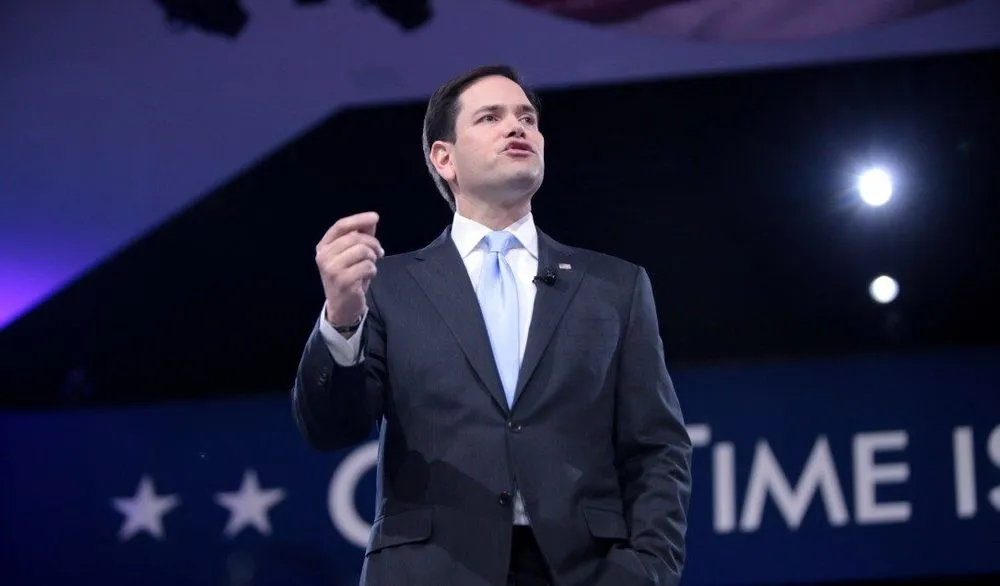Rubio seeks additional details from ODNI on Tucker Carlson accusations
The top Republican on the Senate Intelligence Committee says he intends to press the nation’s spy chief for more details about Tucker Carlson’s accusations that the NSA targeted his communications.
Sen. Marco Rubio (R-Fla.) told The Record on Thursday that he plans to send a letter to Director of National Intelligence Avril Haines as soon as today about how the episode is “undermining the intelligence community” and to request any information her office might have regarding it that doesn’t compromise sources and methods.
“If there’s no information, then tell us that,” Rubio said.
It’s unclear if his letter can or will be released publicly.
“Ultimately it’s a very delicate issue because there [are] things that are classified and they control classification, we don’t. We can’t declassify something or reveal it,” according to Rubio.
The missive is a sign that congressional Republicans aren’t ready to stop pursuing the allegations made last month by the Fox News host, even though an NSA review of its intercepts found no evidence to support his claims.
The Record first reported that an examination by the nation's top electronic spy agency showed that Carlson was mentioned in communications between third parties and subsequently “unmasked.” Carlson had charged that the NSA was spying on him in a bid to knock him off the air.
The allegation came around the same time Carlson, through U.S.-based Kremlin middlemen, sought an interview with Russian President Vladimir Putin.
Rubio, who previously made informal inquiries to the NSA about Carlson's assertion through Intelligence Committee channels, chided the agency for responding to the initial accusation via Twitter.
“It was completely bizarre,” he said, calling it “almost unresponsive to the claim.”
Some Capitol Hill Democrats speculate that Rubio, who is up for reelection in 2022, is worried about a primary challenge from the right and is creating a paper trail to shield himself from possible future criticism should Carlson or former President Donald Trump turn their ire toward him for not doing enough to unearth some kind of wrongdoing.
The Florida Republican dismissed the notion that he is trying to protect himself politically.
“This is a concern that multiple people have, it’s not just me,” he told The Record. “I just happen to be the vice chair of the committee. I mean, if I wouldn't ask, who would on this side?”
The letter comes as an investigation into the NSA by Republicans on the House Intelligence Committee is floundering.
The probe, called for last month by Minority Leader Kevin McCarthy (R-Calif.), began with the GOP sending a list of questions about Carlson’s claims to NSA and U.S. Cyber Command chief Paul Nakasone, according to a source familiar with the effort.
Members found the four-star general’s responses unsatisfactory and have since submitted another list of inquiries. The GOP doesn’t fully believe the NSA’s explanation that Carlson wasn’t targeted or the victim of so-called “incidental collection,” this person said.
The source did say that Carlson learned he was mentioned in a classified intelligence product through a leak somewhere in the federal government and speculated that the Justice Department and the FBI have been looking into the matter since the allegations were first aired.
While panel Republicans wait for a response to their latest batch of questions, there is a prevailing sense among members that, absent subpoena power, there is not much more they can do to pressure the NSA — beyond continuing to pepper it with demands for information and making public statements — unless they regain the majority in next year’s election.
Martin Matishak
is the senior cybersecurity reporter for The Record. Prior to joining Recorded Future News in 2021, he spent more than five years at Politico, where he covered digital and national security developments across Capitol Hill, the Pentagon and the U.S. intelligence community. He previously was a reporter at The Hill, National Journal Group and Inside Washington Publishers.



